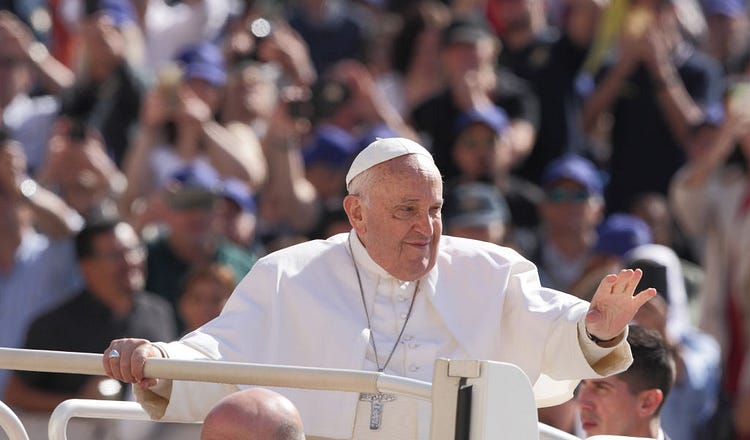How Does the Pope Really Feel About Gay Rights?

Pope Francis has reportedly called on religious leaders not to admit “hysterical queers” to seminaries. (Photo by Grzegorz Galazka/Archivio Grzegorz Galazka/Mondadori Portfolio via Getty Images)
Francis has reportedly warned against the Catholic church’s widespread atmosphere of frociaggine—literally, faggotry.
53
Pope Francis issued an awkward apology Tuesday for using the term faggotry, but his apparent verbal slip is fueling speculation about his true beliefs toward homosexuality.
In a closed-door meeting with Italian bishops on May 20 that was reported on Monday, Francis, 87, warned against the widespread atmosphere of frociaggine—literally faggotry—in the Ca…
Continue Reading The Free Press
To support our journalism, and unlock all of our investigative stories and provocative commentary about the world as it actually is, subscribe below.
$8.33/month
Billed as $100 yearly
$10/month
Billed as $10 monthly
Already have an account?
Sign In


